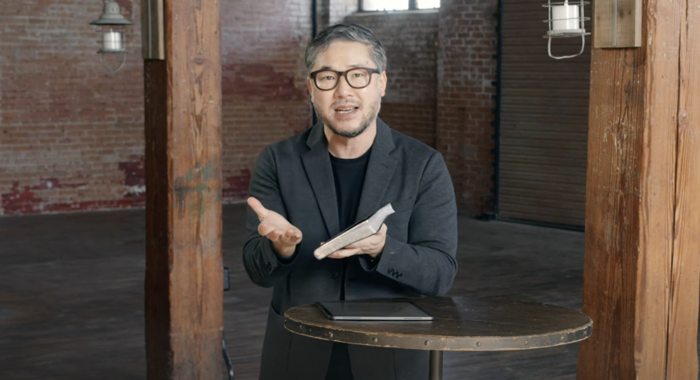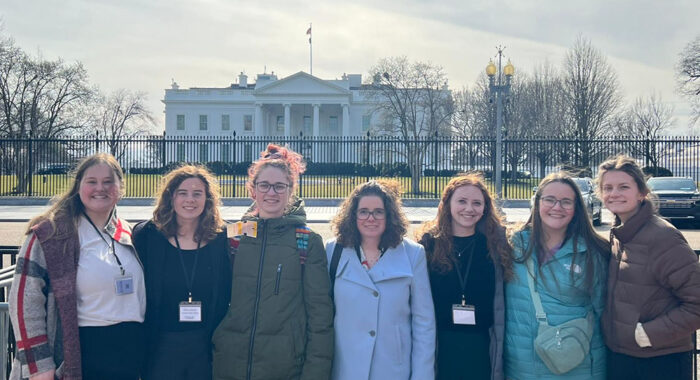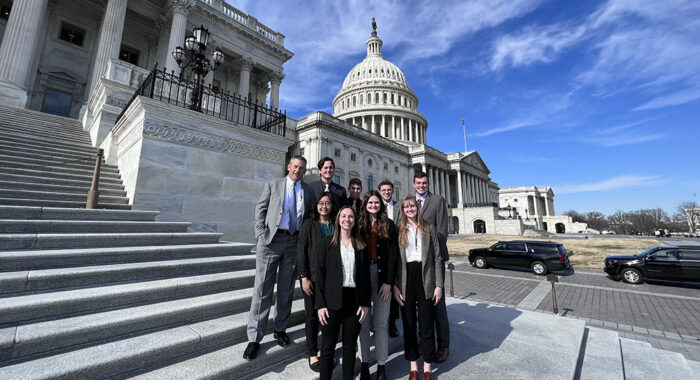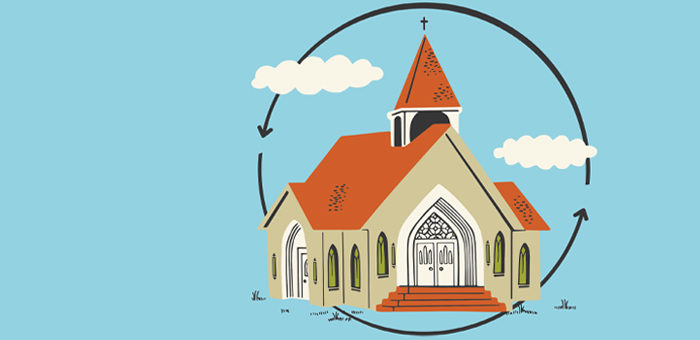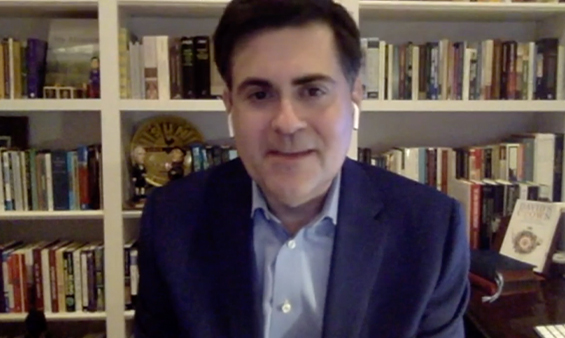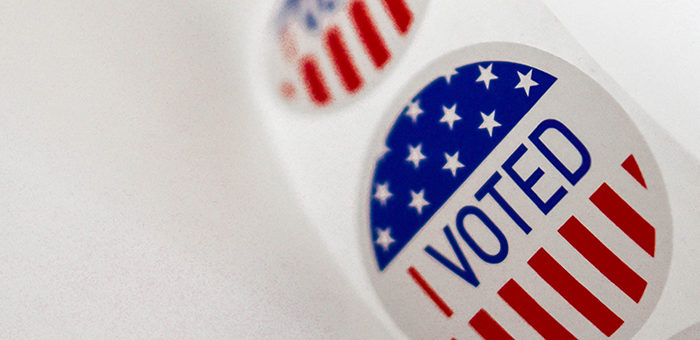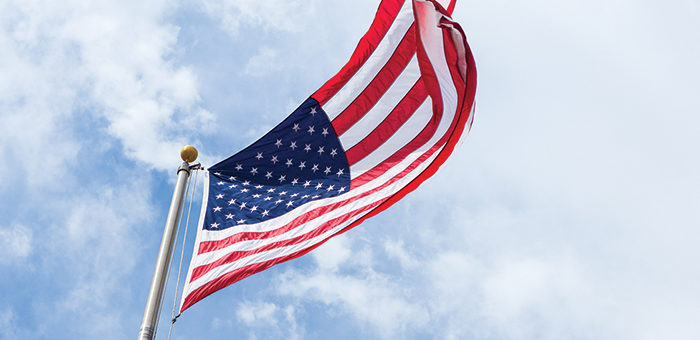The initial inquiry for this article was whether I might be willing to write about why I don’t preach politics. My response was to laugh first and then to offer a qualified response: “Yes, but only if I can alter the title with the modifier ‘partisan.’” I don’t preach partisan politics.
Apart from disengaging from the culture entirely, I don’t think it is possible to sidestep politics. Any pastor who avoids preaching about anything politicians talk about will have decided not to address anything relevant to anyone who is listening. I’ve been accused (wrongly) of “preaching politics” whenever I have addressed biblical issues like racism, the sanctity of human life, the environment, hospitality to strangers, or even civility (love). I usually know I am getting it right when I am catching it from all sides. But I don’t preach partisan politics, despite my own political inclinations.
Not of This Cosmos
The reason I avoid political partisanship is because, quite literally, I know it is one of Satan’s most powerful instruments to conform the Church to the world. Jesus was clear in stating that “his kingdom was not of this cosmos” (John 18:36) and in praying that his followers would be unified “in the cosmos, but not of it” (John 17:14–19). The Greek word κόσμος (cosmōs) is rightly translated “the social order of the world,” the very stuff of partisan politics.
This is what Jesus resisted when Satan took him to a high mountain and offered him the “kingdoms of the cosmos and their glory” if Jesus would submit to him (Matthew 4:8–11). If the kingdoms of the world were Satan’s to give, then they are still his purview.
When these “cosmetics” are worn by the Church, and the social order of the Church looks like that of the world, the Church loses both its moral influence and its freedom to speak truth to worldly power of every stripe. Jesus plainly directed his followers to avoid this social order of the world with all its power plays (Matthew 20:25–28).
Christ’s Appointees
There are legitimate reasons for Christians to disfellowship, but partisan politics are not among them. Paul establishes that “our citizenship is in heaven” (Philippians 3:20) and that we are “Christ’s ambassadors” imploring the world to “be reconciled to God” (2 Corinthians 5:20). Every local church is an embassy of the kingdom of God, and every member is an emissary of Heaven with a missionary visa to the world. Our redemptive prayer is that the kingdom of God would be visible “on earth as it is in heaven” (Matthew 6:10).
I glimpse that each week when I recognize that those attending the inside-the-beltway church I pastor have not placed themselves on opposite sides of the aisle according to their worldly politics any more than they have segregated themselves by race, gender or social class. On any given weekend, it is common to see appointees of the last (Democratic) administration seated beside those of the present (Republican) one, for instance. They come to be shaped by the word of God, not the way of the world. For them, there are plenty of tempting places to be conformed to the cosmos, but only one transforming place to be cruciformed to Christ.
Temples of Political Ideology
Paul counsels us that our “true and proper worship” is to be “transformed by the renewal of our minds, not conformed to the pattern of this world” (Romans 12:1–2). I wonder how this is possible if we take the bait of Satan and make our churches partisan temples of political ideology.
I recognized a long time ago that no political party — whatever its ever-shifting posture or platform at any given point in time — has a monopoly on truth and virtue. People on both political poles believe that their party is rationally moral, but precious little of partisan politics is rational at all, and there are vast ethical inconsistencies in the platforms of both American political parties. Why would we even consider conforming our churches and pulpits to this?
Yet, sincere people come to their pastors constantly and say, in essence, “Please baptize my political preferences and make them sacred.” These people hope in vain for an aligned world that always makes sense, one that will rescue them from the struggles of cognitive dissonance that are unavoidable in the shadow of Christ’s cross.
When our members say, “We don’t like when you preach politics,” they usually mean that we just challenged their comfortable assumptions about how the world should work for them. If we stuck to preaching their politics — whoever they might be — they’d judge us apolitical purveyors of truth. That’s why churches are sorting themselves out in the partisan pattern of this world, and that’s why many pastors preach partisan politics. It’s easy.
Living in the Deep State
When I was first called to this large church on the edge of the nation’s capital 18 years ago, a grizzled veteran U.S. senator walked up to me after my first sermon and said sternly, “Start praying, you’ve just been dropped in behind enemy lines.” I didn’t know how to respond, then, but now I would. I started praying a long time ago, because I was dropped behind enemy lines the moment I drew my first breath.
We all live and minister in the same “deep state” — the condition of fallenness, fear and shame. Whenever we begin to believe that we are merely fighting those on whichever side of the aisle, we have forgotten that “our struggle is not against flesh and blood, but against the rulers, against the authorities, against the powers of this dark world and against the spiritual forces of evil in the heavenly realms” (Ephesians 6:12).
I preach politics, because I can’t avoid real issues as Christ’s ambassador in a world he is redeeming. I don’t preach partisan politics, because nothing would please Satan more than to get his foot in the door of my church in his quest to conform it to his will. I preach God’s infallible word, and it has a way of offending us all, sometimes, as it reminds us again and again that we navigate a world that cannot make sense. Alas, that world is not my home.
This article originally appeared in Evangelicals magazine.
Jim Baucom has been senior pastor of Columbia Church in Falls Church, Virginia, for over 15 years. He is a leader in state, national and international organizations, and a consultant and speaker for numerous nonprofit and corporate entities. Baucom has been active in the faith and work sector for years and is co-founder of the NEXUS Community of Practice project. He holds a bachelor’s degree from the University of Richmond, a master’s degree from Southeastern Baptist Theological Seminary, and a doctor of ministry degree from Princeton Theological Seminary.




 View All Articles
View All Articles 











